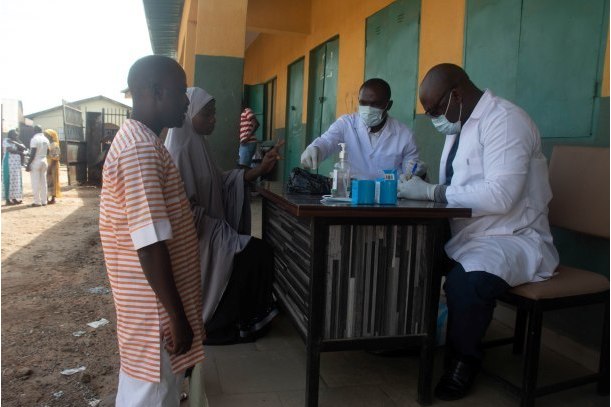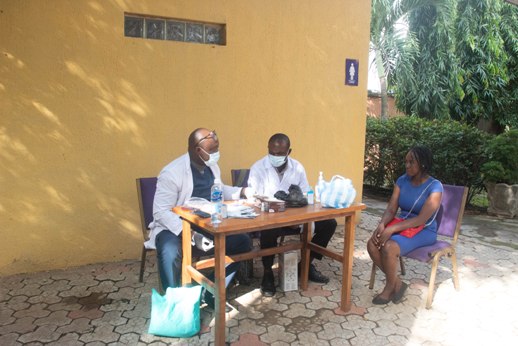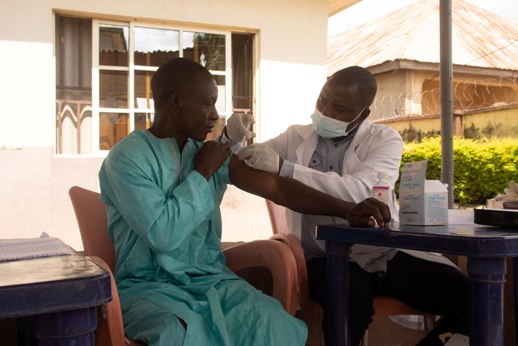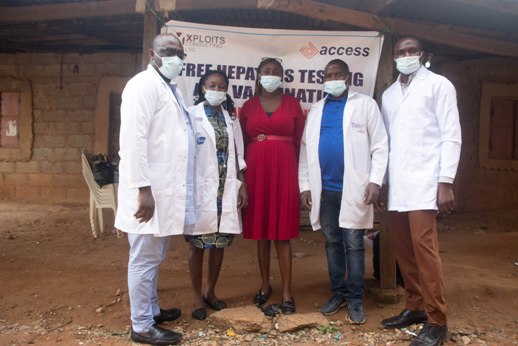Access Bank commemorates World Hepatitis Day

Summary
In Nigeria, knowledge of the viral hepatitis remains low with an estimated 10 million persons having the chronic hepatitis B virus out of which 67 per cent are unaware of their status and 50,000 dying annually.
Each year, viral hepatitis, the stealthy killer in the bloodstream, causes 1.4 million entirely preventable deaths. Hepatitis is an inflammation of the liver that is caused by a variety of infectious viruses and non-infectious agents leading to a range of health problems, some of which can be fatal. There are five main strains of the hepatitis virus, referred to as types A, B, C, D and E. While they all cause liver disease, they differ in important ways including modes of transmission, severity of the illness, geographical distribution and prevention methods.
In particular, types B and C lead to chronic disease in hundreds of millions of people and together are the most common cause of liver cirrhosis, liver cancer and viral hepatitis-related deaths. Nearly 330 million people have chronic hepatitis B or C virus infection, and viral hepatitis is the seventh leading cause of death globally. Yet less than 1 in 10 persons with chronic viral hepatitis, which can cause liver cancer, know they have it.
The burden of hepatitis B infection is highest in the WHO Western Pacific Region and the WHO African Region, where 116 million and 81 million people, respectively, are chronically infected. In highly endemic areas, hepatitis B is most commonly spread from mother to child at birth (perinatal transmission) or through horizontal transmission (exposure to infected blood), especially from an infected child to an uninfected child during the first five years of life. Hepatitis B is also spread by needlestick injury, tattooing, piercing and exposure to infected blood and body fluids.
In commemoration of the 2021 World Hepatitis Day, the Access Bank partnered with Xploits Consulting Limited to execute free Hepatitis B screening/testing and vaccination intervention project in the Federal Capital Territory (FCT), Abuja. The program was designed with the objectives of engendering awareness on the prevalence of the virus in rural communities, sensitization of communities on prevention and vaccination against Hepatitis B infection.
In Nigeria, knowledge of the viral hepatitis remains low with an estimated 10 million persons having the chronic hepatitis B virus out of which 67 per cent are unaware of their status and 50,000 dying annually. Therefore, improving knowledge and providing screening and vaccination is a public health priority.
During the program, healthcare professionals were involved to provide information to improve knowledge on the virus. One hundred and ninety-one (191) community members of Bwari, Kwali, Kuje and Gwagwalada area councils of FCT, Abuja, gained direct knowledge on the deadly virus and a total of 160 persons received free Hepatitis B vaccine in those area councils.
Access Bank, Africa’s leading sustainability institution has demonstrated its support and commitment to supporting vibrant communities wherein it operates. The Bank continually engages in strategic community development initiatives that are geared towards achieving the Sustainable Development Goals.


Related
-
World Bank President commends Sierra Leone on the end of Ebola transmission
Celebrations erupted in Freetown along with solemn vigils to remember those who lost their lives to the disease.
-
New research highlights key interventions to prevent infant mortality
Lassi said 2.9 million newborns around the world do not live beyond their first month of life.
-
AstraZeneca launches initiative to improve asthma care in Africa
According to the World Health Organisation (WHO), over 80 per cent of asthma-related deaths occur in low- and lower-middle ...









